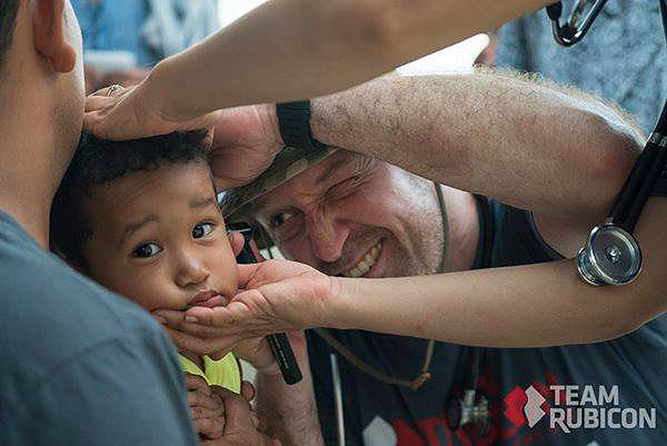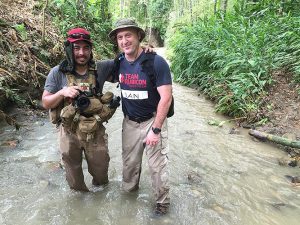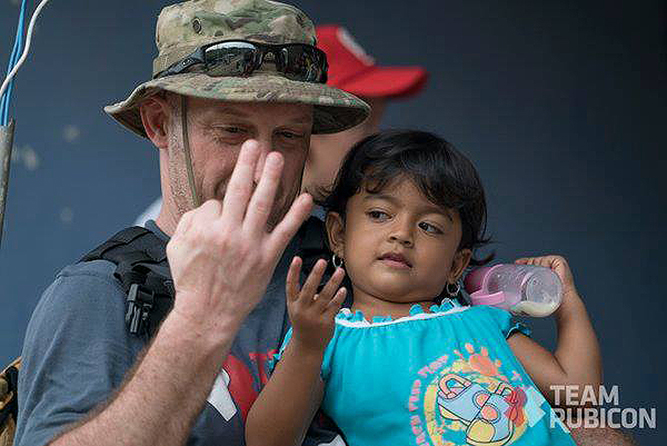Schwartz ’94 Provides Medical Assistance in Ecuador with Team Rubicon


Last spring, Dan Schwartz ’94 returned from Ecuador where he worked as a physician with Team Rubicon as a part of a rapid-deployment disaster medical assistance team after a 7.8M earthquake hit the area on April 16, 2016. Team Rubicon provided rescue, medical and reconnaissance aid to remote villages that could not be reached by the local government or non-governmental organizations.
“One of our mottos is, ‘We go where the others can’t or won’t,” Schwartz says.
Team Rubicon, a group of military veterans and first responders, was formed in 2010. In its first mission, the team brought lifesaving equipment and supplies to Haiti, which had been devastated by an earthquake with a magnitude of 7.0.
Schwartz joined Team Rubicon in 2015, only a year and a half before getting that phone call on April 21. “‘Can you go to Ecuador? Let us know—your flight leaves in eight hours.’” He was on board.
Schwartz, the medical director of the emergency medical services at Forbes Hospital in Monroeville, Pa., is also a tactical support physician for the FBI SWAT team in Pittsburgh and a flight surgeon with the U.S. Army, serving in Afghanistan in 2012. “There’s a little bit of crazy in this,” he admits. “I’m going to show up in a country where I don’t speak the language, the country is in crisis, and the infrastructure is nonexistent.
“Team Rubicon an extension of what I do as a career,” Schwartz notes. “It’s intensely satisfying: we serve people, our country, each other, without going to war.”



